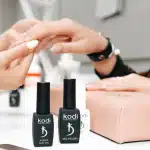For decades, the traditional college experience was viewed as a four-year, on-campus journey filled with lecture halls, meal plans, and rigid class schedules. It was a structure built around a specific phase of life, typically the years right after high school. But in 2024, That model is being challenged from all angles. The global shift to remote work, rising tuition costs, and a changing student demographic are forcing a fundamental question: Is the 9-to-5 degree model becoming obsolete? Increasingly, learners reject the idea that education must happen within a narrow window of time and location. Instead, they’re choosing programs that mold around their lives, not the other way around.
The Rise of the Nontraditional Student
The definition of a “typical” student has changed dramatically. According to the National Center for Education Statistics, nearly 40% of today’s college students are over 25, and Many are balancing full-time jobs, family responsibilities, or military service. These learners aren’t necessarily looking for a campus experience but flexibility, relevance, and accessibility. Online programs have answered that call, allowing students to earn degrees from anywhere, often on their schedules. This isn’t a backup plan anymore; it’s the preferred route for many. What’s emerging is a model of lifelong learning. People aren’t attending college just once— they’re dipping in and out of education as their careers evolve. Whether it’s a full degree, a certificate, or a single course to sharpen a skill, education is becoming modular and Continuous.
Learning in the Flow of Life
One of the most significant shifts we’re seeing is the integration of learning into daily life. No longer something that happens in a silo, education today is being consumed between work meetings, after kids are asleep, or during travel. Mobile-friendly platforms, asynchronous lectures, and short, stackable modules mean that learning can happen in pockets of time, not just set hours. This has enormous implications for equity and access. Parents, caregivers, rural residents, and people with disabilities can now engage in higher education on their own terms. Time and place no longer dictates who gets to learn. Of course, this model comes with its challenges—motivation, time management, and tech access being the big ones—but it represents a seismic rethinking of what “school” looks Like.
Employers Are Taking Note
The workforce is also adjusting. Employers who once prioritized pedigree and physical diplomas are now more interested in demonstrable skills, relevant certifications, and evidence of ongoing learning. What you learned five years ago may already be outdated in fast-evolving fields like data analytics, digital marketing, and IT. As a result, hiring managers are looking beyond Ivy League credentials and embracing alternative pathways. Microcredentials, portfolio projects, and real-world experience often carry as much weight as a traditional degree, sometimes more. This shift aligns closely with the offerings of institutions that specialize in accessible, career-aligned education. Platforms like SNHU online programs are designed to meet students where they are, offering accredited degrees with real-world application at their Core.
Community Without the Campus
A standard critique of online education is the loss of social connection. But even that’s evolving. Virtual cohorts, discussion forums, and live video classes are bridging the gap. Some students report feeling more connected in online communities than they ever did in a large lecture hall. The emphasis is shifting from geography-based community to interest-based community. Students connect over shared goals, career paths, or life experiences, regardless of their location. In some ways, this creates a more diverse and inclusive educational experience than traditional campuses, where age, background, and life stage often create silos.
Final Thoughts: The Future Is Flexible
The 9-to-5 degree isn’t dead—but it’s no longer the dominant model. What we’re witnessing is the democratization of higher education. Learning is becoming something that adapts to your life instead of demanding that your life adapt to it. As technology, career expectations, and personal lives continue to evolve, higher education must do the same. The future of learning is modular, mobile, and lifelong—and That’s good news for anyone who ever felt boxed out by the old system. So whether you’re a recent high school graduate, a working parent, or a career changer navigating your next move, the classroom has never been closer—or more on your terms.

Markmalte is an experienced writer for The Celebrity Niche, specializing in celebrity stories. With a keen eye for detail, he brings the latest updates on celebrity relationships, biographies, and news to his readers.







